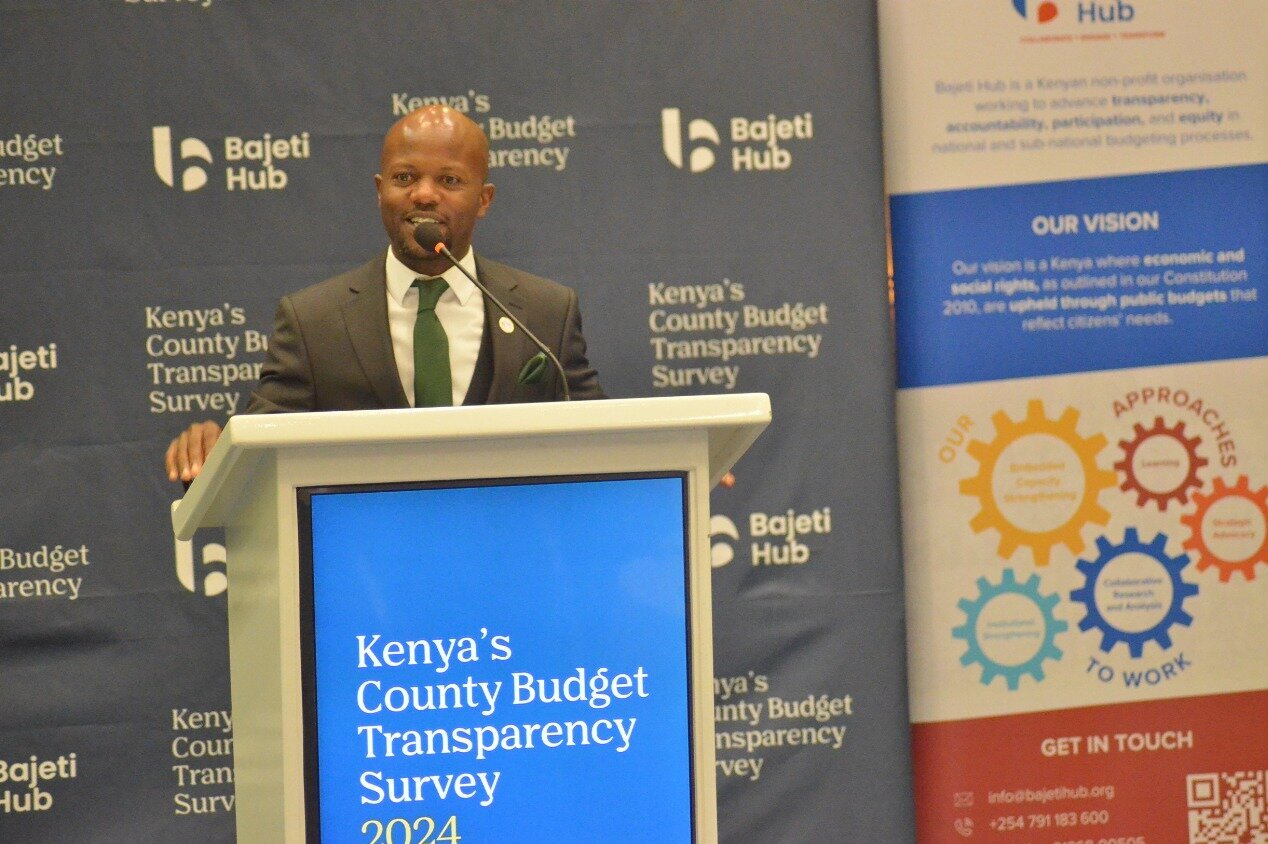Counties slammed for budget secrecy despite gains in transparency rankings

Dr Abraham Rugo, Director Bajeti Hub, speaking during the launch of Kenya's county Budget Transparency Survey 2024 in Nairobi. Photo/Sande Onyango
A new survey by Bajeti Hub has raised fresh concerns over the state of budget transparency in Kenya's county governments, despite a modest national improvement in performance.
The 2024 County Budget Transparency Survey (CBTS), launched Thursday, shows that while more counties are publishing essential budget documents, the majority still fail to meet the legal and ethical threshold of transparency.
The CBTS scores counties based on the availability, timeliness, and comprehensiveness of 11 key budget documents.
This year, Kenya recorded a national average score of 64 out of 100, up from 56 in 2023 and 41 in 2022.
Top Performers in 2024
- Kwale – 81 points
- Makueni – 80 points
- Bungoma – 78 points
- Machakos – 74 points
- Wajir – 74.2 points
- Elgeyo Marakwet – 72 points
- Nyandarua – 71 points
- Kajiado – 70 points
- West Pokot – 69 points
- Nyeri – 68 points
Kwale County earned the highest score, becoming the first to secure an 'A' rating. Makueni, Bungoma, and Machakos followed closely, continuing a trend of improvement in traditionally strong-performing counties. Notably, Wajir County entered the top five for the first time, reflecting a major leap in document publication and accessibility.
In stark contrast, counties such as Kisii (40 points), Garissa (39 points), and Mandera (36 points) posted sharp declines. Kisii, for instance, fell by 18 points compared to its 2022 score of 58. These regressions raise concerns about systemic backsliding in public finance transparency.
Over the past three(3) years, CBTS scores have shown a gradual national improvement.
In 2022, only eight(8) counties published all required quarterly budget reports.
That number rose to 25 in 2023 and continued to improve in 2024. Machakos County exemplifies this positive trend, rising from 33 points in 2021 to 74 this year.
Speaking during the launch, Dr Abraham Rugo, Executive Director of Bajeti Hub, warned that Kenya's transparency gains are at risk if counties continue treating legal requirements as optional.
"We face a governance crisis in Kenya: borrowed funds aren't translating into services, institutions aren't fulfilling their roles, and promised reforms remain unimplemented. This cycle of borrowing without accountability deepens the crisis, despite financial data being publicly available," Dr Rugo stated.
He emphasised the importance of not only publishing documents, but ensuring their usability and alignment with public interest.
The report recommends stronger enforcement mechanisms by oversight bodies and greater civic engagement to hold counties accountable. With the 2024/25 budget process underway, stakeholders are calling on counties to close the gap between policy and practice.
Full survey results are available at bajetihub.org.
This story was produced for Avdelta News. For more updates on public finance and governance, follow us on avdeltanews.world.

Be the First to Comment